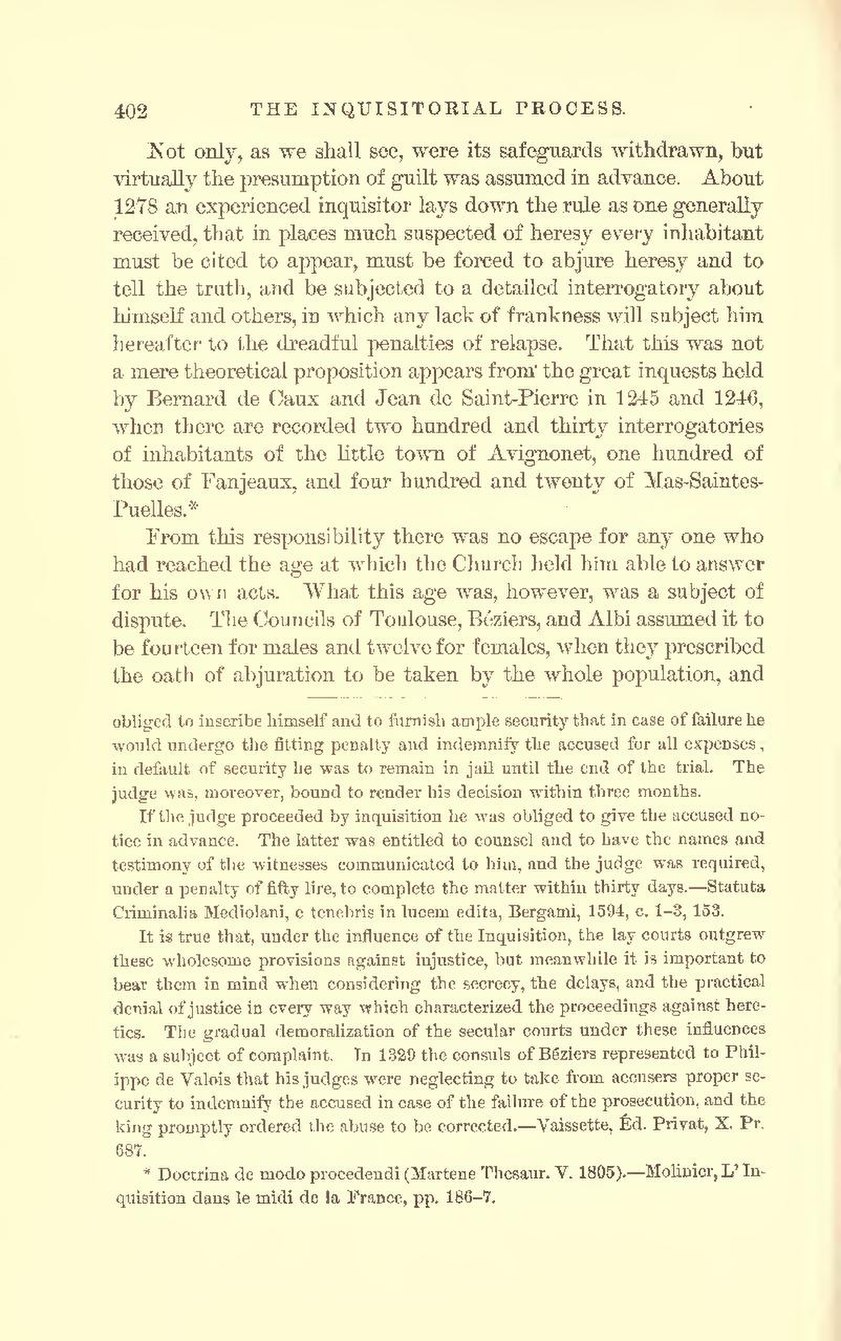Not only, as we shall see, were its safeguards withdrawn, but virtually the presumption of guilt was assumed in advance. About 1278 an experienced inquisitor lays down the rule as one generally received, that in places much suspected of heresy every inhabitant must be cited to appear, must be forced to abjure heresy and to tell the truth, and be subjected to a detailed interrogatory about himself and others, in which any lack of frankness will subject him hereafter to the dreadful penalties of relapse. That this was not a mere theoretical proposition appears from the great inquests held by Bernard de Caux and Jean de Saint-Pierre in 1245 and 1246, when there are recorded two hundred and thirty interrogatories of inhabitants of the little town of Avignonet, one hundred of those of Fanjeaux, and four hundred and twenty of Mas-Saintes-Puelles.[1]
From this responsibility there was no escape for any one who had reached the age at which the Church held him able to answer for his own acts. What this age was, however, was a subject of dispute. The Councils of Toulouse, Béziers, and Albi assumed it to be fourteen for males and twelve for females, when they prescribed the oath of abjuration to be taken by the whole population, and
- ↑ Doctrina de modo procedendi (Martene Thesaur. V. 1805).-Molinier, L' Inquisition dans le midi de la lFrance, pp. 186-7
obliged to inscribe himself and to furnish ample security that in case of failure he
would undergo the fitting penalty and indemnify the accused for all expenses,
in default of security lie was to remain in jail until the end of the trial. The
judge was, moreover, bound to render his decision within three months.
If the judge proceeded by inquisition he was obliged to give the accused notice in advance. The latter was entitled to counsel and to have the names and testimony of the witnesses communicated to hi, and the judge was required, under a penalty of fifty lire, to complete the matter within thirty days.-Statuta Criminalia Mediolani, c tenebris in lucem edita, Bergami, 1594, c. 1-3, 153.
It is true that, under the influence of the Inquisition, the lay courts outgrew
these wholesome provisions against injustice, but mean while it is important to
bear them in mind when considering the secrecy, the delays, and the practical
denial of justice in every way which characterized the proceedings against here-
tics. The gradual demoralization of the secular courts under these influences
was a subject of complaint. Tn 1320 the consuls of Béziers represented to Philippe de Valois that his judges were neglecting to take from accusers proper security to indemnify the accused in case of the failure of the prosecution, and the king promptly ordered the abuse to be corrected.-Vaissette, Éd. Privat, X. Pr.
687
